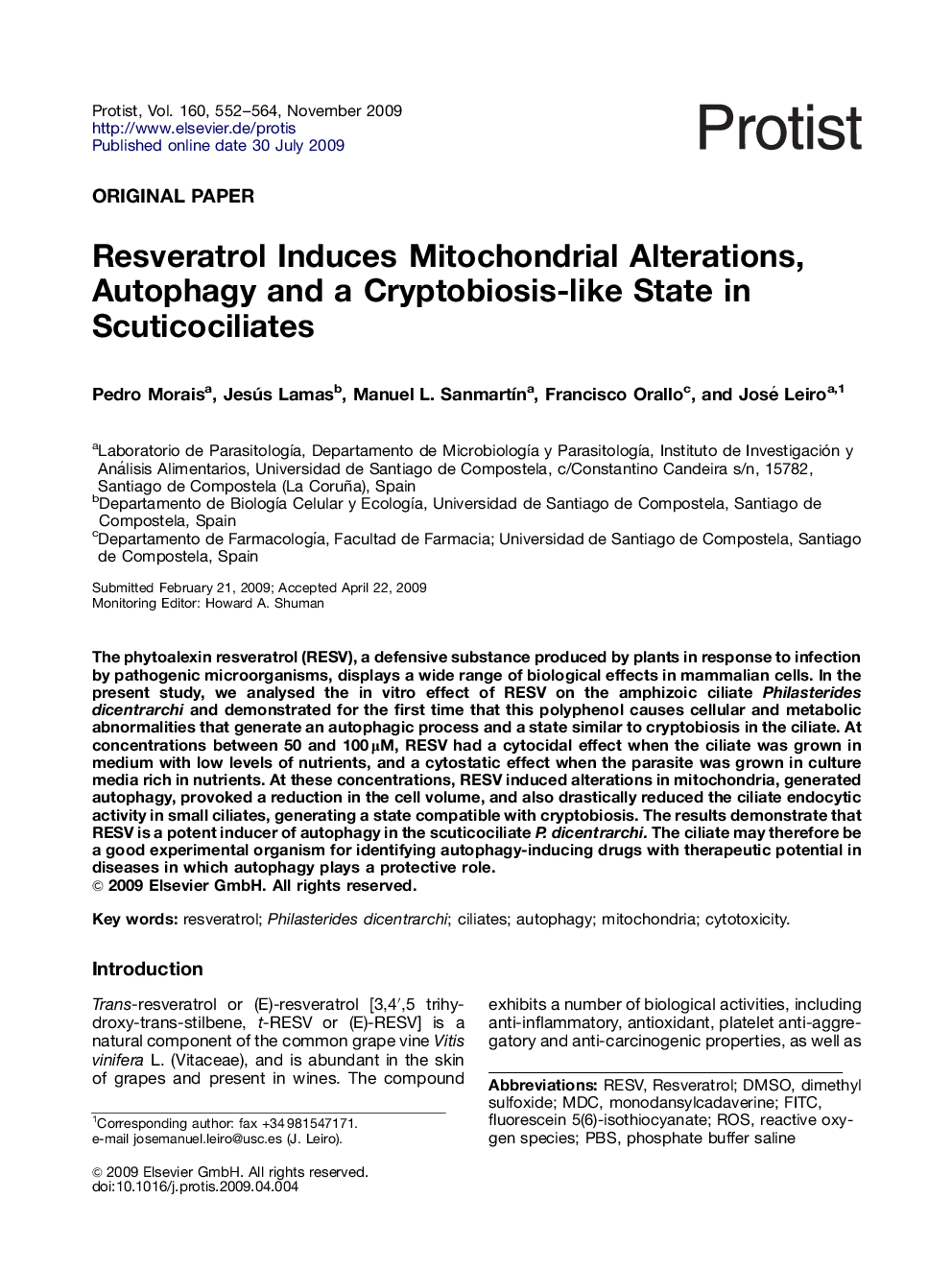| Article ID | Journal | Published Year | Pages | File Type |
|---|---|---|---|---|
| 2062081 | Protist | 2009 | 13 Pages |
The phytoalexin resveratrol (RESV), a defensive substance produced by plants in response to infection by pathogenic microorganisms, displays a wide range of biological effects in mammalian cells. In the present study, we analysed the in vitro effect of RESV on the amphizoic ciliate Philasterides dicentrarchi and demonstrated for the first time that this polyphenol causes cellular and metabolic abnormalities that generate an autophagic process and a state similar to cryptobiosis in the ciliate. At concentrations between 50 and 100 μM, RESV had a cytocidal effect when the ciliate was grown in medium with low levels of nutrients, and a cytostatic effect when the parasite was grown in culture media rich in nutrients. At these concentrations, RESV induced alterations in mitochondria, generated autophagy, provoked a reduction in the cell volume, and also drastically reduced the ciliate endocytic activity in small ciliates, generating a state compatible with cryptobiosis. The results demonstrate that RESV is a potent inducer of autophagy in the scuticociliate P. dicentrarchi. The ciliate may therefore be a good experimental organism for identifying autophagy-inducing drugs with therapeutic potential in diseases in which autophagy plays a protective role.
